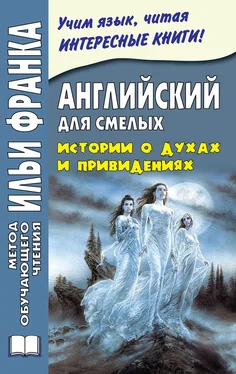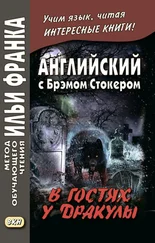
 There were other times also, at which Mr Batchel would use the books. Not being a sound sleeper (for book-loving men seldom are), he elected to use as a bedroom one of the two chambers which opened at either side into the library. The arrangement enabled him to beguile many a sleepless hour amongst the books, and in view of these nocturnal visits he kept a candle standing in a sconce above the desk, and matches always ready to his hand.
There were other times also, at which Mr Batchel would use the books. Not being a sound sleeper (for book-loving men seldom are), he elected to use as a bedroom one of the two chambers which opened at either side into the library. The arrangement enabled him to beguile many a sleepless hour amongst the books, and in view of these nocturnal visits he kept a candle standing in a sconce above the desk, and matches always ready to his hand.
There was one disadvantage in this close proximity of his bed to the library. Owing, apparently, to some defect in the fittings of the room, which, having no mechanical tastes, Mr Batchel had never investigated, there could be heard, in the stillness of the night, exactly such sounds as might arise from a person moving about amongst the books. Visitors using the other adjacent room would often remark at breakfast, that they had heard their host in the library at one or two o’clock in the morning, when, in fact, he had not left his bed. Invariably Mr Batchel allowed them to suppose that he had been where they thought him. He disliked idle controversy, and was unwilling to afford an opening for supernatural talk. Knowing well enough the sounds by which his guests had been deceived, he wanted no other explanation of them than his own, though it was of too vague a character to count as an explanation. He conjectured that the window-sashes, or the doors, or ‘something’, were defective, and was too phlegmatic and too unpractical to make any investigation. The matter gave him no concern.
Persons whose sleep is uncertain are apt to have their worst nights when they would like their best(с людьми, которым сон дается нелегко, часто так бывает, что именно тогда, когда им бы хотелось отоспаться, их одолевает бессонница: «люди, чей сон нестабилен, склонны иметь свои худшие ночи, когда им бы хотелось свои лучшие») . The consciousness of a special need for rest seems to bring enough mental disturbance to forbid it(осознание особой необходимости в отдыхе, похоже, настолько будоражит мозг, что отдых становится невозможен: «приносит достаточно умственного возбуждения, чтобы воспрепятствовать ему»; to forbid – запрещать; не позволять; препятствовать ) . So on Christmas Eve, in the year 1907(так вот, в канун Рождества в 1907 году) , Mr Batchel, who would have liked to sleep well, in view of the labours of Christmas Day(мистер Бэтчел, которому хотелось как следует выспаться, так как Рождество было для него тяжелым днем: «ввиду /предстоящих/ трудов Рождества») , lay hopelessly wide awake(лежал в постели, и сна у него не было ни в одном глазу; to lie; hopelessly – безнадежно; wide – / нареч. / широкo; совершенно, абсолютно; awake – не спящий, бодрствующий ) . He exhausted all the known devices for courting sleep(он перебрал все известные способы вызвать сон; to exhaust – исчерпывать, израсходовать; device – устройство, приспособление; метод, методика, способ; to court – ухаживать, добиваться; привлекать, приманивать ) , and, at the end, found himself wider awake than ever(и, после этого: «в конце», обнаружил, что он бодрее, чем когда бы то ни было) . A brilliant moon shone into his room, for he hated window-blinds(яркая луна светила ему в комнату, так как он ненавидел шторы; brilliant – / прил. / искрящийся, блестящий, сверкающий; to shine ) . There was a light wind blowing(дул легкий ветерок) , and the sounds in the library were more than usually suggestive of a person moving about(и звуки в библиотеке более обычного напоминали звуки, издаваемые слоняющимся по комнате человеком; suggestive – вызывающий мысли ) . He almost determined to have the sashes ‘seen to’(он почти решил /позаботиться о том/, чтобы оконные переплеты «посмотрели»; to have smth. + прич. прош. вр. – обозначает, что действие производит кто-либо другой по чьей-либо просьбе, заказу, приказу; to see to smth. – присматривать за чем-либо, заботиться о чем-либо ) , although he could seldom be induced to have anything ‘seen to’(хотя его редко можно было вынудить попросить, чтобы что-нибудь «посмотрели»; to induce – побуждать, склонять ) . He disliked changes, even for the better(ему не нравились перемены, даже к лучшему) , and would submit to great inconvenience rather than have things altered with which he had become familiar(и он готов был терпеть значительные неудобства, нежели изменить что-то, к чему он уже притерпелся: «с чем стал близок»; to submit – подчиняться, покоряться ).
As he revolved these matters in his mind, he heard the clocks strike the hour of midnight(покуда он размышлял об этом: «пока он прокручивал эти вопросы у себя в уме», он услышал, как часы пробили полночь; to revolve – вращать; вертеть; обдумывать; hour – час ) , and having now lost all hope of falling asleep, he rose from his bed(и потеряв теперь всякую надежду заснуть, он поднялся: «он поднялся со своей кровати»; to fall asleep – уснуть, заснуть ) , got into a large dressing gown which hung in readiness for such occasions(влез в большой домашний халат, который висел наготове как раз для таких случаев) , and passed into the library, with the intention of reading himself sleepy, if he could(и прошел в библиотеку с намерением почитать, пока его не одолеет сон: «учитать себя до сонности», если это окажется возможным; sleepy – сонный, засыпающий ).

 Persons whose sleep is uncertain are apt to have their worst nights when they would like their best. The consciousness of a special need for rest seems to bring enough mental disturbance to forbid it. So on Christmas Eve, in the year 1907, Mr Batchel, who would have liked to sleep well, in view of the labours of Christmas Day, lay hopelessly wide awake. He exhausted all the known devices for courting sleep, and, at the end, found himself wider awake than ever. A brilliant moon shone into his room, for he hated window-blinds. There was a light wind blowing, and the sounds in the library were more than usually suggestive of a person moving about. He almost determined to have the sashes ‘seen to’, although he could seldom be induced to have anything ‘seen to’. He disliked changes, even for the better, and would submit to great inconvenience rather than have things altered with which he had become familiar.
Persons whose sleep is uncertain are apt to have their worst nights when they would like their best. The consciousness of a special need for rest seems to bring enough mental disturbance to forbid it. So on Christmas Eve, in the year 1907, Mr Batchel, who would have liked to sleep well, in view of the labours of Christmas Day, lay hopelessly wide awake. He exhausted all the known devices for courting sleep, and, at the end, found himself wider awake than ever. A brilliant moon shone into his room, for he hated window-blinds. There was a light wind blowing, and the sounds in the library were more than usually suggestive of a person moving about. He almost determined to have the sashes ‘seen to’, although he could seldom be induced to have anything ‘seen to’. He disliked changes, even for the better, and would submit to great inconvenience rather than have things altered with which he had become familiar.
Читать дальше
Конец ознакомительного отрывка
Купить книгу


 There were other times also, at which Mr Batchel would use the books. Not being a sound sleeper (for book-loving men seldom are), he elected to use as a bedroom one of the two chambers which opened at either side into the library. The arrangement enabled him to beguile many a sleepless hour amongst the books, and in view of these nocturnal visits he kept a candle standing in a sconce above the desk, and matches always ready to his hand.
There were other times also, at which Mr Batchel would use the books. Not being a sound sleeper (for book-loving men seldom are), he elected to use as a bedroom one of the two chambers which opened at either side into the library. The arrangement enabled him to beguile many a sleepless hour amongst the books, and in view of these nocturnal visits he kept a candle standing in a sconce above the desk, and matches always ready to his hand.










